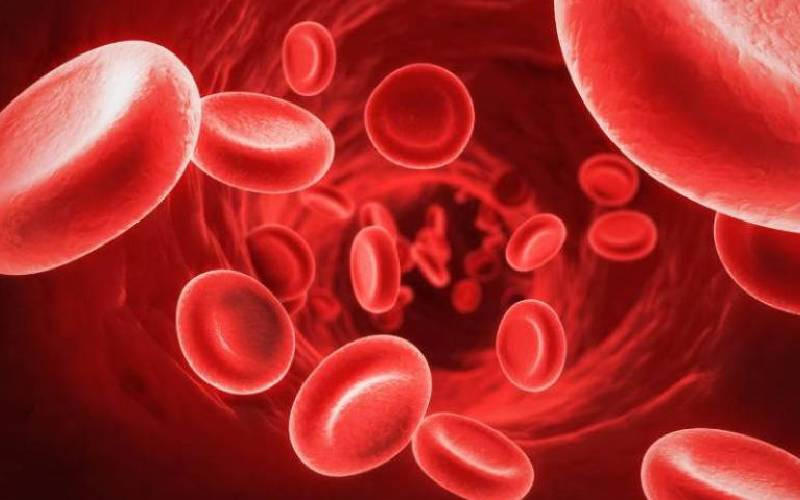By GATONYE GATHURA
The new killer in town, heart disease, shows it is not afraid of anybody, including those in the Kenya Defence Forces (KDF).
Some military officers who have been in peacekeeping or combat missions know no peace because of the disease.
Apart from combat, which exposes the soldiers to more stress than the ordinary Kenyan, they are not doing any better than civilian middle class when it comes to watching their diet and drinking habits.
A survey at the Armed Forces Memorial Hospital (AFMH) in Nairobi on how the soldiers are guarding against lifestyle diseases found that those who get the heart disease are hard drinkers, eat a lot of red meat and are current or past smokers.
“We found that among KDF soldiers with heart problems most were taking alcohol daily, ate a lot of red meat, have used tobacco and are not eating enough fruits or vegetables,” the lead researcher Dr Samuel Kimani of the School of Nursing Sciences, University of Nairobi told The Standard on Sunday.
Published in April in the journal ISRN Preventive Medicine, the study, which also included Dr Victor Mundan of AFMH, was funded by the Ministry of Defence.
The researchers sampled 340 military personnel visiting the Memorial hospital, half of whom were hypertensive – or had developed high blood pressure. The other half was for purposes of study comparison.
Activity schedule
“When we did general medical tests on the non-hypertensive group. They were in excellent condition, mainly because the military recruits the healthiest in the community and have to do regular exercises and constant medical screening,” says Kimani.
But just like in other militaries in the world, they found an increase in lifestyle diseases among the KDF soldiers, caused by the same factors affecting the civilian population, which include too much alcohol and tobacco and less fruit and vegetable consumption.
One of the lessons from this study, explains the researchers, is that physical exercise alone will not save you from lifestyle diseases. One must adopt all the other components of healthy living.
Nearly two thirds of all study participants reported their work involved lifting weights and they engage in muscular flexibility and endurance activities.
The study raises questions on the role of the much-hyped physical activity in maintaining health and specifically heart health.
Ordinarily, the researchers say, the military personnel ought to be physically fit, because of their stringent healthy diet, regular physical activity schedule, controlled military weight standards, regular medical checkups and health awareness.
“Our findings, however, point to the fact that hypertension may be a result of many factors.” The team found majority of those with high blood pressure to be the older men, averaging 42 years, most who were likely to be obese and or carrying excessive weight. Those found sick were also more likely to have participated in peace or combat missions.
Majority, 68 per cent, of subjects who had participated in peace missions were hypertensive compared to 36.08 per cent who had never been on such assignments.
Kimani explains that peace missions come with their own challenges, including combat exposure, and separation from family and friends. “Combat exposure elicits stress due to factors such as engagement with enemy forces, encounter with wounded civilians or soldiers and maimed bodies, and also loss of colleagues.”
Those sick reported daily alcohol consumption and smoking, frequent red meat and inadequate fruits and vegetables consumption. The most commonly consumed alcoholic drink among the soldiers with high blood pressure was found to be beer, with most individuals reporting daily drinking.
Higher risk
Education was found also to have a say on whether a soldier was at a higher risk of becoming hypertensive. The majority, 87 per cent, of the participants with hypertensive disease appeared to have secondary and primary level qualifications, while most of the non-diseased had college or higher education.
This the team attributed to higher health awareness and practices among participants who attained higher education. “Studies have shown that hypertension and its risk factors are relatively unknown to people of lower education level.”
Surprised by this findings, Kimani is currently planning to do similar surveys among other sections of the uniformed forces in the country to possibly disabuse the thinking that physical activities alone protects one from heart disease.
Preliminary finding in a study among rural residents of Kiambu, where they are involved in high physical activities, shows high levels of high blood pressure.
 The Standard Group Plc is a multi-media organization with investments in media platforms spanning newspaper print
operations, television, radio broadcasting, digital and online services. The Standard Group is recognized as a
leading multi-media house in Kenya with a key influence in matters of national and international interest.
The Standard Group Plc is a multi-media organization with investments in media platforms spanning newspaper print
operations, television, radio broadcasting, digital and online services. The Standard Group is recognized as a
leading multi-media house in Kenya with a key influence in matters of national and international interest.











